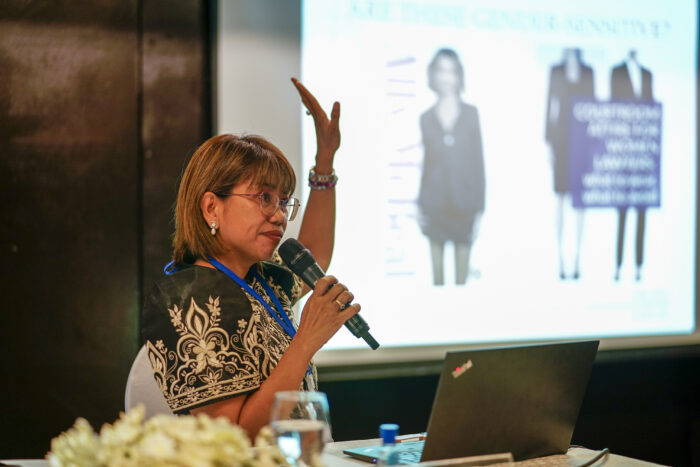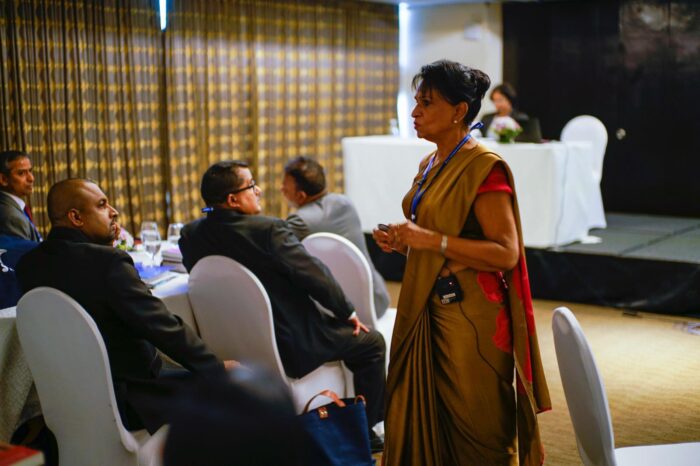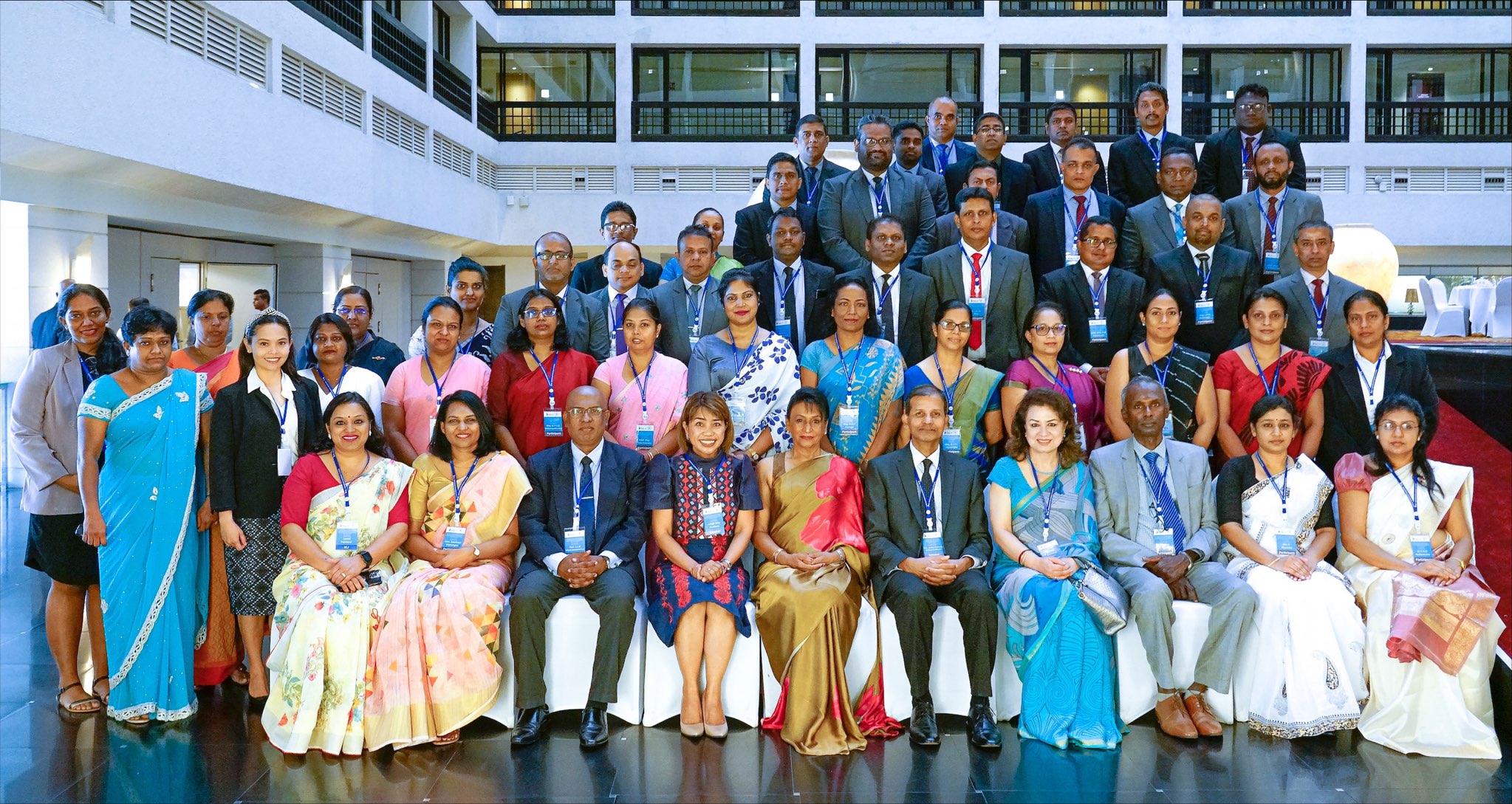Sri Lankan judges who participated in the Judicial Dialogue on Access to Justice for Women conducted by the International Commission of Jurists in partnership with the Sri Lanka Judges’ Institute recognized that implicit biases and stereotypes hamper substantive gender equality and discussed ways for these to be countered so as to advance women’s access to justice.
On 10-11 April, forty-two (42) Magistrates and District Court judges from all over Sri Lanka participated in the third Judicial Dialogue in Colombo, organized under the ICJ’s Enhancing Women’s Access to Justice project,
Delivering the keynote message, ICJ Commissioner and prominent global human rights advocate Hina Jilani called on the participating judges to address the three fundamental barriers to justice women face: discriminatory laws, discriminatory application of laws, and discriminatory systems. Emphasizing the critical role judges must play, His Lordship Justice Mahinda Samayawardhena, Director of the Sri Lanka Judges’ Institute suggested that ‘there appears to be desire on the part of the legislature to do away with gender discriminatory laws in Sri Lanka, but the deep-rooted cultural values cannot be brushed aside overnight. The attitudes, and thinking patterns of the people need to be changed. This is a gradual process. In this process, judges have a heavy responsibility to shoulder.’

Many participants were of the view that the lack of advancement in enacting laws that are more egalitarian, and women’s limited access to resources, opportunities, and education, meant that it was essential to challenge gender stereotypes and alter cultural attitudes through judicial processes and decisions.
The dialogues focused on the responsibility of judges to interpret domestic legislation in line with international human rights obligations, including the UN Convention on the Elimination of all forms of Discrimination Against Women. They also highlighted the use of the Bangkok General Guidance on Deciding with a Gender Perspective, an instrumental resource for promoting equitable justice. The question of gender biases, implicit or otherwise, that may hamper women from accessing justice during the judicial process was also tackled.

At the end of the two-day discussion, many affirmed that mindfulness of their own implicit gender biases would contribute towards enhancing women’s access to justice and affirmed that they would work towards making their court rooms more gender-sensitive.
The judicial dialogue was led by an esteemed panel of experts, including Ms. Hina Jilani, ICJ Commissioner (Pakistan), Ms. Bandana Rana, UN CEDAW Committee member (Nepal), Justice Shirani Tilakawardane, Former Acting Chief Justice of Sri Lanka, Judge Amy Alabado Avellano, Regional Trial Court Judge (Philippines), Prof. Dinesha Samararatne, Faculty of Law, University of Colombo.
For further information contact:
Sushmitha Thayanandan: National Legal Advisor: Sri Lanka on sushmitha.thayanandan@icj.org





